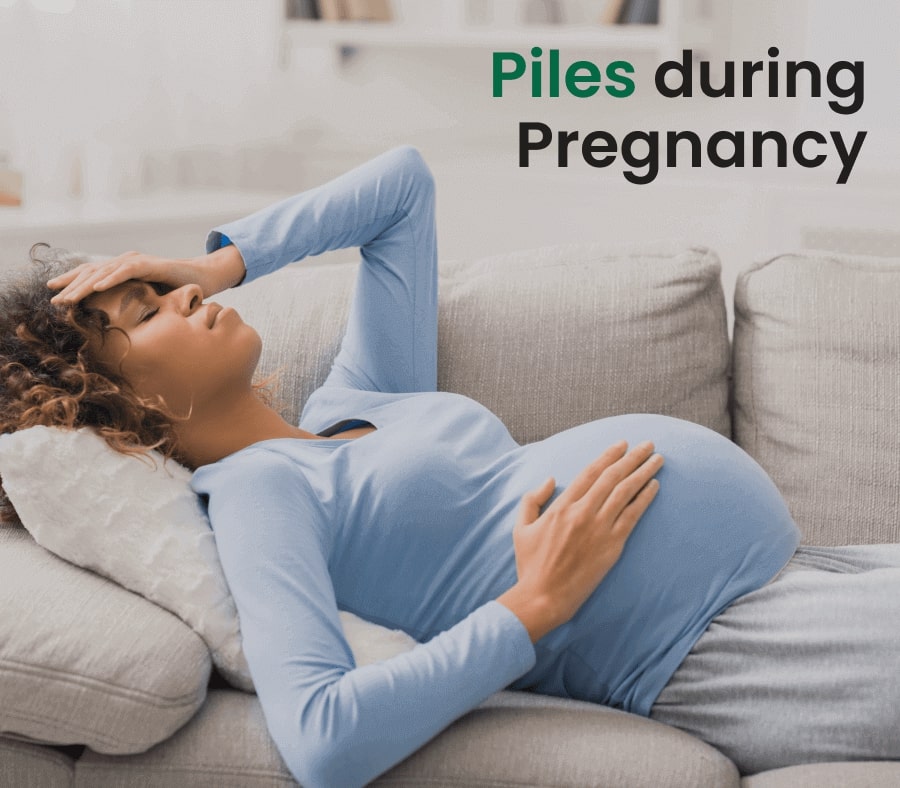Most common problem that many pregnant women encounter is piles, also known as hemorrhoids. These swollen blood vessels in the rectum and anus can cause significant discomfort and pain. Understanding the causes, symptoms, prevention, and management of Piles during Pregnancy is essential for expectant mothers to ensure a smoother and more comfortable pregnancy period

Causes of Piles During Pregnancy
-
- Increased Pressure on the Pelvic Area
-
- Hormonal Changes
-
- Constipation
Symptoms of Piles
-
- Bleeding
-
- Itching
-
- Pain
Prevention and Management
-
- Dietary Changes
-
- A high-fiber diet can help prevent constipation and promote regular bowel movement.
-
- Hydration
-
- Regular Exercise
-
- Avoiding Straining
-
- Medical Treatments
-
- Topical Treatments
-
- Suppositories
When to Seek Medical Advice
Pregnant women experiencing persistent or severe symptoms of piles should seek medical advice promptly. Additionally, any rectal bleeding should be evaluated by a healthcare provider to rule out other potential causes and ensure appropriate management.
Conclusion
Piles, though common during pregnancy, can cause significant discomfort and distress for expectant mothers. Understanding the causes, symptoms, and management strategies can help alleviate pain and ensure a smoother pregnancy journey. By adopting preventive measures, making lifestyle changes, and seeking timely medical advice, pregnant women can effectively manage piles and focus on enjoying this precious time in their lives.
FAQs
Can piles harm my baby during pregnancy?
Piles themselves do not pose a direct threat to the baby’s health. However, severe cases may lead to discomfort and affect the mother’s well-being.
Are there any complications associated with untreated piles?
Untreated piles can cause significant discomfort and may lead to complications such as thrombosis (blood clots within the piles) or prolapse (protrusion of piles outside the anus).
Can I use over-the-counter medications?
It’s essential to consult with a Lady Piles Doctor and Laser Proctologist before using any medications, including over-the-counter treatments, during pregnancy to ensure they are safe for both the mother and the baby.
Are there any lifestyle changes I can make to prevent piles during pregnancy?
Yes, maintaining a high-fiber diet, staying hydrated, engaging in regular exercise, and avoiding straining during bowel movements can help prevent or alleviate the symptoms of piles during pregnancy.
When should I contact my healthcare provider about piles during pregnancy?
If you experience persistent or severe symptoms of piles, such as bleeding, pain, or discomfort, it’s essential to seek medical advice promptly for proper evaluation and management. For assistance call Padma Hospital
